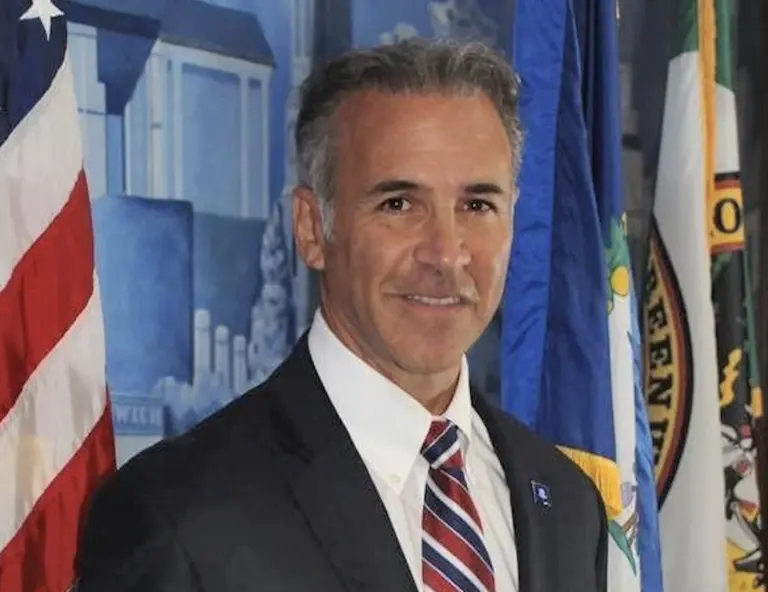As contentious debate continues around several proposed zoning bills at the state level that focus on affordable housing issues, Greenwich is looking to come up with a local solution.
Under the 8-30g state statute, Greenwich has not yet achieved the 10% affordable housing mandate. Last week, Chair of the Planning & Zoning Commission, Margarita Alban, outlined a presentation to the Board of Selectmen in which a trust fund would be created in order to reach that 10% mark.
“We believe that financial support can facilitate the development or purchase of additional affordable units, renovation of existing affordable units, and potentially enhance affordability of existing units,” Alban said. Funds would be allocated to developers or Greenwich Communities (formerly known as the Greenwich Housing Authority) for such projects. “We believe that a fund can facilitate development consistent with Greenwich land use patterns.”
The idea for a trust fund similar to this was first proposed to the Representative Town Meeting in 1988, but it was tabled. A year later, the 8-30g affordable housing statute was approved, and since then, Greenwich has not met the 10% affordable housing goal.
The trust fund would come at no cost to the town. Alban said the language is being written so that it can be funded by private donations and grants. However, in the future, she indicated that the town will consider some sort of development fee, as other nearby towns are doing.
Along with the trust would come a seven-member Board of Trustees, consisting of two members from the public appointed by the Board of Selectmen/RTM “who have experience in affordable housing or the housing market so they can add to the depth and knowledge of the group” Alban said.
Two members would come from the Board of Estimate and Taxation — one being the majority leader, and the other the minority leader for the BET.
Alban said those members will be important because of the spending and expenditure financing decisions that will have to be made.
The Town’s Planning & Zoning Director and Human Services Director would also be on the board. The Town Comptroller would be the fiduciary custodian, Alban said. “We think this is super important. You have to have very strong internal controls when you’re managing what could become a significant amount of money.”
All Board of Trustees meetings would be noticed to the public.
“We would require a supermajority of five votes for the board to approve projects,” Alban said, noting that an annual report would be issued on all activities. But the Planning & Zoning Commission would still have to approve any projects that go before the trustees.
Alban’s proposal to the Board of Selectmen comes on the heels of controversial public hearings in Hartford around proposed zoning bills. Proponents say they would add more affordable housing in the state, but opponents say they would strip municipalities of local control.
Recently, First Selectman Fred Camillo issued testimony on SB-1024: an act concerning zoning authority, certain design guidelines, qualifications of certain land use officials and certain sewage disposal systems.
“I cannot state in strong enough terms that one size fits all, Hartford driven mandates that weaken local control of authority is both not needed and potentially very dangerous,” Camillo said last month. “Any legislative proposal that threatens the streetscape and architectural consistency of neighborhoods in every municipality in the State of Connecticut by taking away local decision making will devalue property, hurt tax revenues, clutter streets, and take away from the beauty of the local neighborhoods that we call home. I stand in opposition of SB 1024 and all other legislative proposals that do not address social equity nor promote affordable housing.”
Camillo added in his testimony that the “worthy goals” of social equity and affordable housing can best be accomplished through local authorities.
Sam Romeo, Chair of the Greenwich Communities Board of Commissioners, said during last week’s Board of Selectmen meeting that Greenwich should be commended for its efforts in trying to address affordable housing issues.
He indicated that this latest trust fund proposal should be widely approved, unlike the original idea that crumbled in 1988. Planning & Zoning must first approve the language, then the Board of Selectmen needs to grant its approval before it goes to the RTM for their consideration.
“I think Margarita has put together a team of people that have tirelessly worked for thousands of hours. They’ve come up with an excellent solution to a lot of our problems,” Romeo said. “I believe it will sail through the RTM once the Board of Selectmen approves this. I’m grateful and pleased to see we’re moving forward into the 21st century with some ideas that would make Greenwich even greater than it already is. I’m proud to be part of it.”
Alban said she’d be “overjoyed” if the RTM would approve the trust fund at its June meeting, but it’s unlikely since the elected body rarely votes after a first read. Since they do not meet in July or August, Alban said September is the earliest an approval can be expected.





